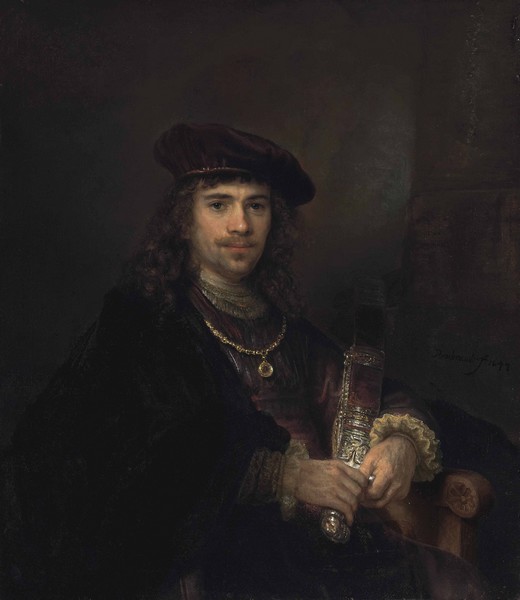
"Cherchez la femme". This phrase, originally in a novel by Alexandre Dumas, was successfully adopted by the classical detective novel and the film noir in the 1940s: if you want to solve a mystery, if you intend to know why a man behaves as he behaves, find the woman behind him. In other words, the world is full of good men manipulated by evil women. Dumas wrote the sentence, but the idea is older, and the ballad world is also full of these stories; for instance, a few weeks ago we listen to La belle Dame sans merci. And I think we could apply the expression "cherchez la femme" to our song this week.
A man arrives at home, sad and with his daunted sword. The mother asks him what happened, and he responds lying, until he admits that he killed his father (and, implicitly, admits he is already repentant). Her mother then asks him what he's going to do now, and it seems she doesn't like the answer: he'll sail away, he'll let his property be lost, his wife and his child will become beggars. And when the mother asks him what's about her, he responds she's going to hell for having incited him. The ballad is skilfully written as a dialogue, there is no narrator, and we heard incomplete information. Did the mother manipulate him, pushing him to murder, and now she realizes she has lost everything? Or did the son misunderstand her bitter comments, and now she is horrified? Cherchez la femme?
This poem was collected by Thomas Percy in 1765 in Reliques of Ancient English Poetry, the English version of an ancient Scottish ballad, and Johann Gottfried Herder rushed to translate it into German and include it in Volkslieder, published in 1778. And since the story is juicy, there are a few musical versions.
This week we're listening to that of Carl Loewe, Edward, a magnificent song composed in 1818 (when he was twenty-one), and published within Op. 1 (his wonderful Erlkönig is also part of this opus). The poem has seven stanzas, each with a question and an answer; Loewe avoids the strophic structure and presents new or previously heard musical as requested by the text. In the first three stanzas, tension increases until the child confesses the crime, singing "Vater" with a fortissimo that moves. The song could end here and, in fact, it seems so, with an eight-bar postlude that fades until apparently ends the piece. Imagine the expectation of the listeners of the time who heard the song for the first time, when they realized there's a second part ("and now, what?"). Loewe really had an acute sense of theatre, and tension increases again to a second climax even more shocking than the first.
There are many versions of the ancient Scottish ballad, as usual; with origins lost in the mists of time or, more recent, incorporated into American folklore. There are also many ballads with a similar structure and history spread throughout Northern Europe. It's interesting that in some of these versions there is a significant difference: the son doesn't kill the father, but the brother, and no intervention from the mother is suggested (imagine her horror!). Sometimes he deliberately kills him, sometimes it's an accident. Are these differences distilled over the centuries in different societies, or is there anything else?
Percy appears to have received the ballad from a friend, who in turn had received it from another friend. It seems that someone, the friend or any other correspondent, had modified the text; perhaps slightly, perhaps decisively, changing the victim or adding the mother's implication (these changes weren't unusual at the time, when folk songs began to be compiled). The point is that it's how Percy got it, how Herder published it and how it was set to music by Loewe, and I hope you agree that the effect is important. We're listening to Edward, Op. 1/1 by Carl Loewe, in a wonderful version, that of Johannes Martin Kränzle and Hilko Dumno.
Dein Schwert, wie ist’s von Blut so rot?
Edward, Edward!
Dein Schwert, wie ist’s von Blut so rot,
Und gehst so traurig da?—Oh!
Ich hab’ geschlagen meinen Geier tot,
Mutter, Mutter!
Ich hab’ geschlagen meinen Geier tot,
Und das, das geht mir nah—Oh!
Deines Geiers Blut ist nicht so rot,
Edward, Edward!
Deines Geiers Blut ist nicht so rot,
Mein Sohn, bekenn mir frei—Oh!
Ich hab’ geschlagen meinen Rotross tot,
Mutter, Mutter!
Ich hab’ geschlagen meinen Rotross tot,
Und’s war so stolz und treu—Oh!
Dein Ross war alt und hast’s nicht not,
Edward, Edward!
Dein Ross war alt und hast’s nicht not,
Dich drückt ein andrer Schmerz—Oh!
Ich hab’ geschlagen meinen Vater tot,
Mutter, Mutter!
Ich hab’ geschlagen meinen Vater tot,
Und das, das quält mein Herz—Oh!
Und was wirst du nun an dir tun?
Edward, Edward!
Und was wirst du nun an dir tun?
Mein Sohn, das sage mir! O!
Auf Erden soll mein Fuss nicht ruhn!
Mutter, Mutter!
Auf Erden soll mein Fuss nicht ruhn!
Will wandern übers Meer—Oh!
Und was soll werden dein Hof und Hall?
Edward, Edward!
Und was soll werden dein Hof und Hall?
So herrlich sonst, so schön—Oh!
Ach immer steh’s und sink und fall!
Mutter, Mutter!
Ach immer steh’s und sink und fall!
Ich werd’ es nimmer sehn—Oh!
Und was soll werden aus Weib und Kind?
Edward, Edward!
Und was soll werden aus Weib und Kind,
Wann du gehst übers Meer?—Oh!
Die Welt ist gross, lass sie betteln drin,
Mutter, Mutter!
Die Welt ist gross, lass sie betteln drin,
Ich seh’ sie nimmermehr—Oh!
Und was soll deine Mutter tun?
Edward, Edward!
Und was soll deine Mutter tun?
Mein Sohn, das sage mir—Oh!
Der Fluch der Hölle soll auf Euch ruhn,
Mutter, Mutter!
Der Fluch der Hölle soll auf Euch ruhn,
Denn ihr, ihr rietet’s mir!—Oh!
'Why does your sword so drip with blood,
Edward, Edward?
Why does your sword so drip with blood?
And why so sad are ye, O?'
'O, I have killed my hawk so good,
Mother, mother:
O I have killed my hawk so good:
And I had no more but he, O.'
'Your hawk's blood was never so red,
Edward, Edward:
Your hawk’s blood was never so red,
My dear son I tell thee, O.'
'O, I have killed my red-roan steed,
Mother, mother:
O, I have killed my red-roan steed,
That once was so fair and free, O.'
'Your steed was old, and we have got more,
Edward, Edward:
Your steed was old, and we have got more,
Some other evil ye fear, O.'
'O, I have killed my father dear,
Mother, mother:
O, I have killed my father dear,
Alas! and woe is me, O!'
'And what penance will ye suffer for that,
Edward, Edward?
And what penance will ye suffer for that?
My dear son, now tell me, O.'
'I'll set my feet in yonder boat,
Mother, mother:
I’ll set my feet in yonder boat,
And I’ll fare over the sea, O.'
'And what will ye do with your towers and your halls,
Edward, Edward?
And what will ye do with your towers and your halls,
That were sae fair to see, O?'
'I’ll let them stand till they down fall,
Mother, mother:
I’ll let them stand till they down fall,
For here never more may I be, O.'
'And what will ye leave to your children and your wife,
Edward, Edward?
And what will ye leave to your children and your wife
When ye go over the sea, O?'
'The world is large, let them beg through life,
Mother, mother:
The world is large, let them beg throw life,
For them never more will I see, O.'
'And what will ye leave to your own mother dear,
Edward, Edward?
And what will ye leave to your own mother dear?
My dear son, now tell me, O.'
'The curse of hell from me shall you bear,
Mother, mother:
The curse of hell from me shall you bear,
Such counsels you gave to me, O.'


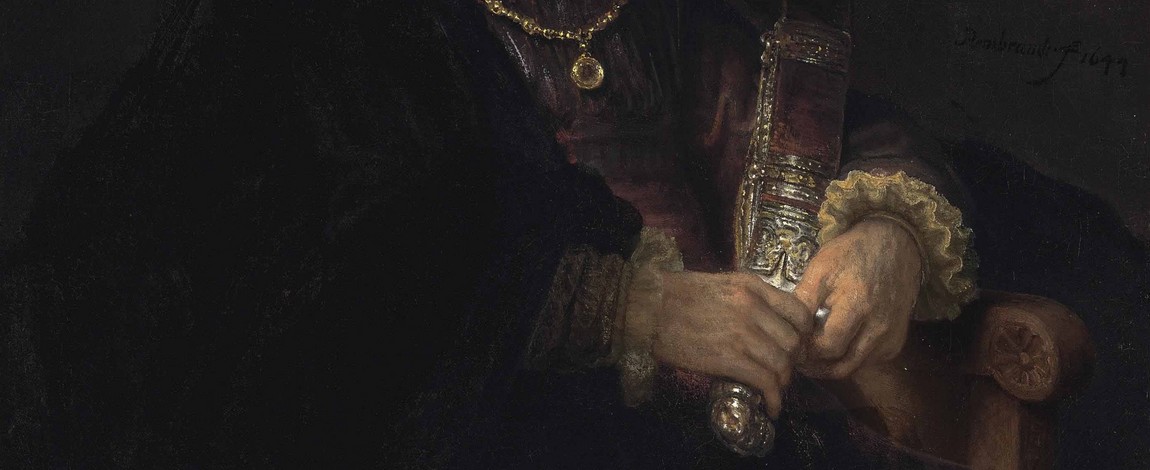
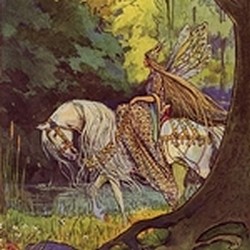 Carl...
Carl...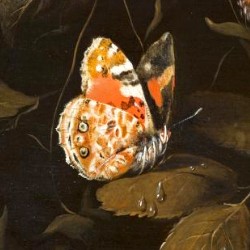
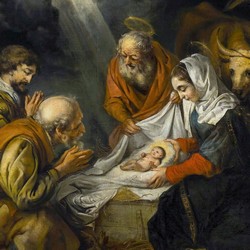












Comments powered by CComment